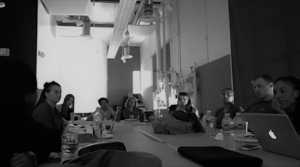 Engaged Graduate Education and the Research University
Engaged Graduate Education and the Research University
Originally Published December 7, 2018
The impacts of service-learning and community engagement (SLCE) on undergraduate students are well-documented, but far less attention has been paid to graduate students. Relatively few graduate programs in the U.S. offer structured opportunities for local community engagement (research/service), guided critical reflection or training in service-learning pedagogy or practice.
“many students experience the transition to graduate study as a withdrawal from public and community service that was a vital part of their undergraduate years” (Stanton & Wagner, 2010, p. 412).
Beginning in 2016, we embarked on a self-contained research and learning project to explore whether graduate-level SLCE opportunities are available at USC, and what they might look like at other universities. To answer these questions, we evaluated existing graduate programs in the U.S. and surveyed USC graduate students from various disciplinary backgrounds (followed by select interviews) to determine access to and interest in SLCE opportunities.
In January of 2018, we recruited 15 USC graduate students with experience and interest in SLCE to participate in a semester-long interdisciplinary learning community: “Engaged Graduate Education.” Student disciplines ranged from neuroscience to comparative literature, international relations, and curatorial studies, among others. Through readings, assignments, and independent research, students developed projects and action plans for implementing SLCE based on the unique needs and constraints of their departments. Our monthly meetings provided a forum for discussion of readings, projects, and experiences, with occasional guest speakers. Meeting discussions were documented and analyzed along with students’ final projects in order to develop a plan for graduate SLCE that could provide value to a wide range of students.
Despite the drastically different cultures of departments represented, students’ recommendations were surprisingly similar. Two broad strategic approaches encompass many of the students’ recommendations for moving forward with SLCE: use of existing structures and professionalization requirements. By “use of existing structures,” we mean building upon, leveraging, employing, or linking to programs, courses, degree requirements, or partnerships that are already established and operational. For example, several students found fitting homes for SLCE courses within existing academic programs, while others sought to use existing university partnerships with non-profit organizations and programs (like JEP) to engage graduate students in community-based research. We suspect this approach was so prevalent because it is cost-effective and requires minimal effort and disruption.
Our students also found that professionalization requirements would make compelling homes for SLCE training and skills development. ”Professionalization” or “professional development” requirements are often built into graduate programs to improve students’ job search and placement outcomes. Though these requirements can take many forms depending on discipline and department, their stated goals are largely the same (e.g. learning how to write a cover letter, prepare for a job interview, and develop a research agenda). For example, in one student’s humanities department, a 12-week long professionalization course is required to graduate. The course is comprised of four three-week long “modules” focusing on different areas of professionalization. For her final project, that student developed a syllabus for an “Engaged Scholarship Module” to fill one of these three-week blocks, containing readings, assignments, and weekly goals meant to expand students’ knowledge of engaged pedagogy and participatory research in the context of that discipline. Unlike disciplinary knowledge-based courses, many professional development requirements do not demand any specialized expertise– they can be taught or supervised by non-tenure track faculty, graduate students, or teachers from a different field. Because one of the defining features of SLCE is its experiential nature, students engaged in it benefit from practical training to supplement their disciplinary work.
Though our graduate initiative was intended to be a self-contained learning project, the EGE shows promise for larger program development opportunities. To date, we have presented our findings at two national conferences with two more planned for 2019. Armed with knowledge of the need for graduate SLCE opportunities at USC, plans are now in the works to apply what we have learned to our own university context and begin to create those opportunities (See MJCSL Special Section on Graduate Education).